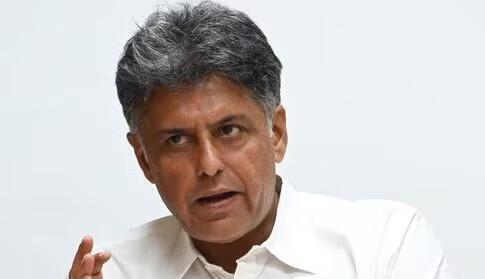
Against Constitution: Tewari on bills to remove jailed PM, CMs
The Indian Parliament recently witnessed a significant development as Union Minister Amit Shah presented three bills aimed at removing Prime Ministers, Chief Ministers, and Ministers who are facing serious criminal charges. While the government has justified the move, citing the need to ensure accountability and good governance, several opposition leaders have expressed concerns about the potential impact of these bills on the country’s democratic fabric. One of the vocal critics of these bills is Congress MP Manish Tewari, who believes that they are fundamentally against the basic structure of the Indian Constitution.
In an interview with a leading news agency, Tewari expressed his reservations about the bills, stating that they would contravene the fundamental principle of the Constitution, which presumes an individual to be innocent until proven guilty. According to Tewari, the potential for misuse of state instrumentalities under these bills is enormous, and it could lead to a situation where political opponents are unfairly targeted and removed from office.
Tewari’s concerns are not unfounded. The bills, if passed, would empower the government to remove Prime Ministers, Chief Ministers, and Ministers who are facing serious criminal charges, including charges related to corruption, terrorism, and other heinous crimes. While the intention behind these bills may be to ensure that individuals who are guilty of serious wrongdoings are held accountable, the reality is that the process of removing them from office could be prone to abuse and misuse.
One of the primary concerns is that the bills would allow the government to remove an individual from office based on allegations, rather than a conviction. This could lead to a situation where an individual is removed from office without being given a fair hearing or an opportunity to defend themselves. Furthermore, the bills do not provide adequate safeguards to prevent political vendetta or misuse of power.
Tewari’s concerns are echoed by several other opposition leaders, who have expressed similar reservations about the bills. The opposition parties have accused the government of trying to undermine the Constitution and the democratic process, and have demanded that the bills be withdrawn.
The bills have also been criticized by several civil society organizations, which have expressed concerns about the potential impact on the country’s democratic institutions. The organizations have argued that the bills would undermine the independence of the judiciary and the legislature, and would create a situation where the government would have unchecked powers.
In conclusion, the bills presented by Union Minister Amit Shah in Parliament are a cause for concern, and require careful consideration and scrutiny. While the intention behind these bills may be to ensure accountability and good governance, the potential for misuse and abuse is enormous. As Tewari has pointed out, the bills are fundamentally against the basic structure of the Constitution, and could lead to a situation where political opponents are unfairly targeted and removed from office.
It is essential that the government reviews these bills and considers the concerns raised by opposition leaders and civil society organizations. The government must ensure that the bills are in line with the Constitution and the democratic principles, and that they do not undermine the independence of the judiciary and the legislature.
At the end of the day, the success of any democracy is measured by its ability to uphold the rule of law, protect individual rights, and ensure that power is exercised in a responsible and accountable manner. The bills presented by Union Minister Amit Shah must be evaluated in this context, and must be found to be consistent with the principles of democracy and the Constitution.






